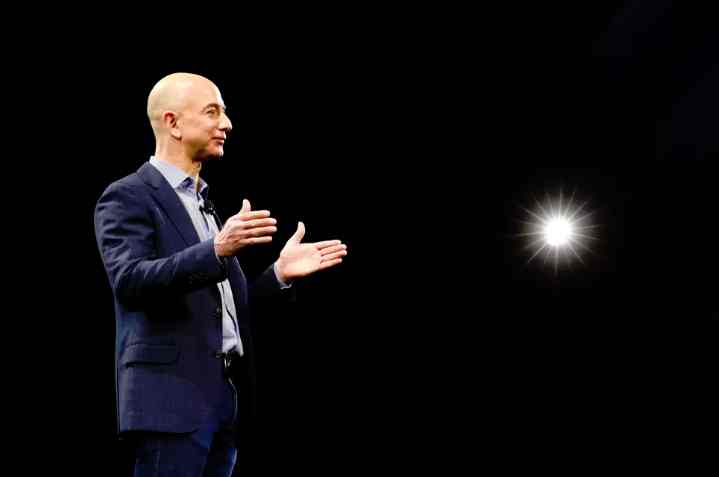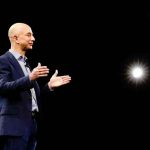Jeff Bezos returns to the CEO seat to co-lead Project Prometheus — a $6.2B AI startup built to power the next industrial revolution

Jeff Bezos has stepped back into the arena — not as an investor, advisor, or behind-the-scenes influence, but as a builder retaking the wheel. After four years away from any hands-on executive role, the former Amazon chief is returning to the CEO seat to co-lead a secretive AI startup called Project Prometheus. The move has jolted tech circles for one simple reason: this isn’t a hobby project or late-career side quest. It’s a $6.2 billion moonshot backed heavily by Bezos himself — one aimed at reshaping how rockets, cars, chips, and industrial systems are engineered.
The story broke early Monday through an exclusive from The New York Times, setting off a wave of questions about why Bezos, now worth roughly $256 billion, would trade a comfortable post-Amazon life for a role with this much operational weight. According to early details, Project Prometheus has already hired close to 100 people, many pulled from OpenAI, DeepMind, and Meta. For a startup that hasn’t said a single word publicly, it’s entering the race like it’s already a heavyweight.
“Jeff Bezos, the founder of Amazon and one of the world’s wealthiest people, is throwing his money and time into an artificial intelligence start-up that he will help manage as its co-chief executive. The company, called Project Prometheus, is coming out of the gates with $6.2 billion in funding, partly from Mr. Bezos, making it one of the most well-financed early-stage start-ups in the world, said three people familiar with the company who spoke on condition of anonymity because details have not yet been made public,” The New York Times reported.
A Titan Steps Back Into the Arena
Bezos walked away from Amazon’s CEO role in 2021 after building one of the most influential companies in modern history — a shift framed as a chance to focus on philanthropy, Blue Origin, and personal projects. His return to a CEO role signals something different: a desire to shape the next chapter of industrial technology rather than simply watch from the sidelines.
This time, he’s sharing leadership with Vik Bajaj, a physicist and former leader at Google’s X lab, where he worked with Sergey Brin on ambitious projects ranging from self-driving tech to health initiatives. Bajaj later helped build Foresite Labs, giving him deep experience operating AI-driven organizations. Together, they form an unusual pairing: Bezos with relentless operational force, Bajaj with deep scientific roots. It’s a combination built for high-stakes engineering problems, not chatbots.
Their plan aligns with a growing tension in AI. While giants like OpenAI focus on digital agents and large-scale models, Bezos is betting that the next breakthroughs will come from AI that interacts with the physical world — the hard stuff that defines rockets, chips, vehicles, factories, and the infrastructure that keeps societies running. One X user captured the sentiment with a mix of humor and accuracy: “Bezos naming it Project Prometheus is cute. Steal fire from the gods, deploy it as SaaS, then charge usage-based pricing until the mortals beg for darkness.”
The symbolism fits. Prometheus is about fire — and this is Bezos starting a new one.
What Prometheus Wants to Build
Project Prometheus is built on a simple idea: engineers still rely on time-consuming trial, error, and intuition to develop physical systems. AI could compress years of testing into days. It could simulate how a spacecraft hull responds under stress long before metals are cut. It could streamline EV battery production, refine rocket trajectories, or predict manufacturing failures before they appear.
In computing, that could mean faster chip design at a moment when the semiconductor shortage is choking everything from smartphones to AI servers. In aerospace, the project sits squarely in the gravitational pull of Blue Origin, where Bezos has long argued for shifting industry off Earth to protect the planet. “Earth must remain the home we protect,” Bezos said last month. “There’s no Plan B — this is the good one.”
For automobiles, AI-driven engineering could shape the future of electric and autonomous vehicles, especially as carmakers scramble for safer batteries and more efficient diagnostics.
The startup’s LinkedIn profile says only: “AI for the physical economy.” No promises, no jargon — just a hint at a huge ambition.
The Timing — and the Stakes
The timing of Bezos’ return stands out. Big Tech is pouring unprecedented sums into AI infrastructure. Microsoft, Meta, and Alphabet are expected to spend a combined $420 billion next year just on AI buildout. Yet their focus remains primarily digital. Bezos is choosing the harder path: physical AI, where improvements translate directly into rockets, factories, cars, and data centers.
That path is crowded but not saturated. Companies like Figure have raised billions to build humanoid robots, but no startup in the space has launched with this much capital or this level of talent density. Early reports show Prometheus pulling senior researchers away from major labs, a move that hints at a brewing talent war. Geoffrey Hinton recently warned that jobs will be replaced as companies push for efficiency. Amazon has already used AI to reduce 14,000 managerial roles. This new wave of “AI for engineering” could reshape economic structures far faster than policymakers expect.
On X, reactions bounced between awe, excitement, skepticism, and the usual Bezos memes. “Jeff Bezos stepping back into a CEO role to co-lead Project Prometheus is wild… This next wave is going to be awesome,” one commenter wrote. Turkish media highlighted the direct competition with Musk’s xAI. Others flagged geopolitical implications. And some warned about the growing concentration of power, describing the move as “a throne being welded inside a datacenter.”
What’s Next?
Project Prometheus has shared almost nothing publicly — no headquarters, no product roadmap, no founding date. But the pace of hiring suggests announcements aren’t far away. Bezos and Bajaj didn’t respond to questions from reporters, leaving observers to piece together clues from job listings and leaked details.
What’s clear is that Bezos didn’t return for a cameo. He’s planting a flag in a category where software meets steel, where code influences rockets, where AI helps build the physical systems that shape economies. This isn’t about replacing chatbots. It’s about rethinking how industry itself is built.
Whether Prometheus sparks a new industrial era or simply pushes existing sectors to move faster, Bezos has made his position clear. He’s betting big — not on websites, not on cloud services, but on the physical machinery that will define the next century.
And that alone guarantees the race has just changed.




